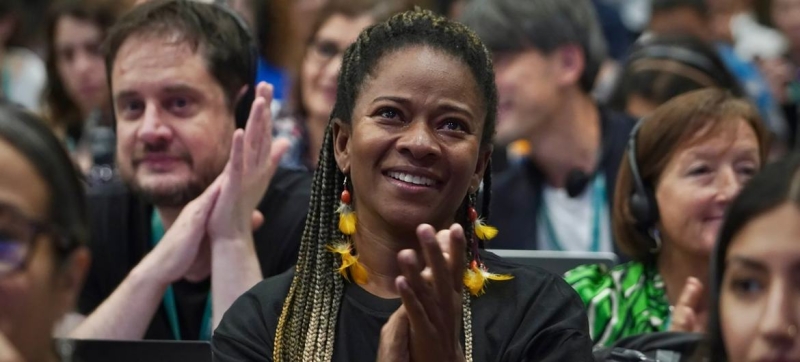
COP16 participants welcome landmark agreements. Historic agreements adopted at Biodiversity Summit in Colombia Climate & Environment
The world’s largest biodiversity summit, COP16, concluded this weekend in Colombia, adopting the first-ever agreement to collect genetic data from nature, and to recognize people of African descent and indigenous peoples as key players in biodiversity conservation efforts.
“This is unprecedented in the history of multilateral environmental agreements,” Camila Paz Romero, representing indigenous peoples at the summit, told UN News.
“Indigenous peoples and communities with knowledge systems that care for life and biodiversity remember the long journey we have taken to get to this agreement,” she added.
Indigenous peoples have been trying to get a seat at the table for three decades, she said.
The summit in Cali, officially known as the 16th Conference of the Parties to the UN Convention on Biological Diversity, concluded after nearly two weeks of intense discussions involving 170 delegations from around the world, according to Colombia’s Ministry of Environment and Sustainable Development.
“A benchmark for the world”
After much debate and discussion, the final stage of COP 16 produced an agreement that recognized indigenous peoples, people of African descent and their communities as key stakeholders in the conservation of biodiversity. Delegates also decided to establish a subsidiary body for them under Article 8-J of the Convention.
“This new subsidiary body is a benchmark for the rest of the world. Parties recognize the need for our full and effective participation, knowledge, innovation, technology and traditional practices to achieve the objectives of the Convention,” Paz said.
The agreement states that each signatory country must respect, preserve and support the knowledge, innovative ideas and practices of indigenous communities that embody traditional ways of life relevant to the conservation and sustainable use of biological diversity.
The newest subsidiary body will provide a permanent forum for indigenous peoples to participate in decision-making on biodiversity. The body will also strengthen dialogue between countries, indigenous peoples and local communities.
Nature’s Genetic Data
Another important step forward was the decision by COP 16 delegates to create a global fund to generate economic resources from the digital information on the genetic codes of species of flora and fauna.
Companies that use this information to develop products will be required to donate a portion of their profits to the so-called “Cali Fund,” from which resources will be allocated to indigenous peoples and local communities, directly or through governments.
Unresolved questions
Two issues discussed in Cali remained unresolved – a funding model for the biodiversity plan and a monitoring mechanism to measure countries’ progress in implementing the biodiversity roadmap.
By the end of the summit, discussions on these issues had stalled and no agreement had been reached on them.
